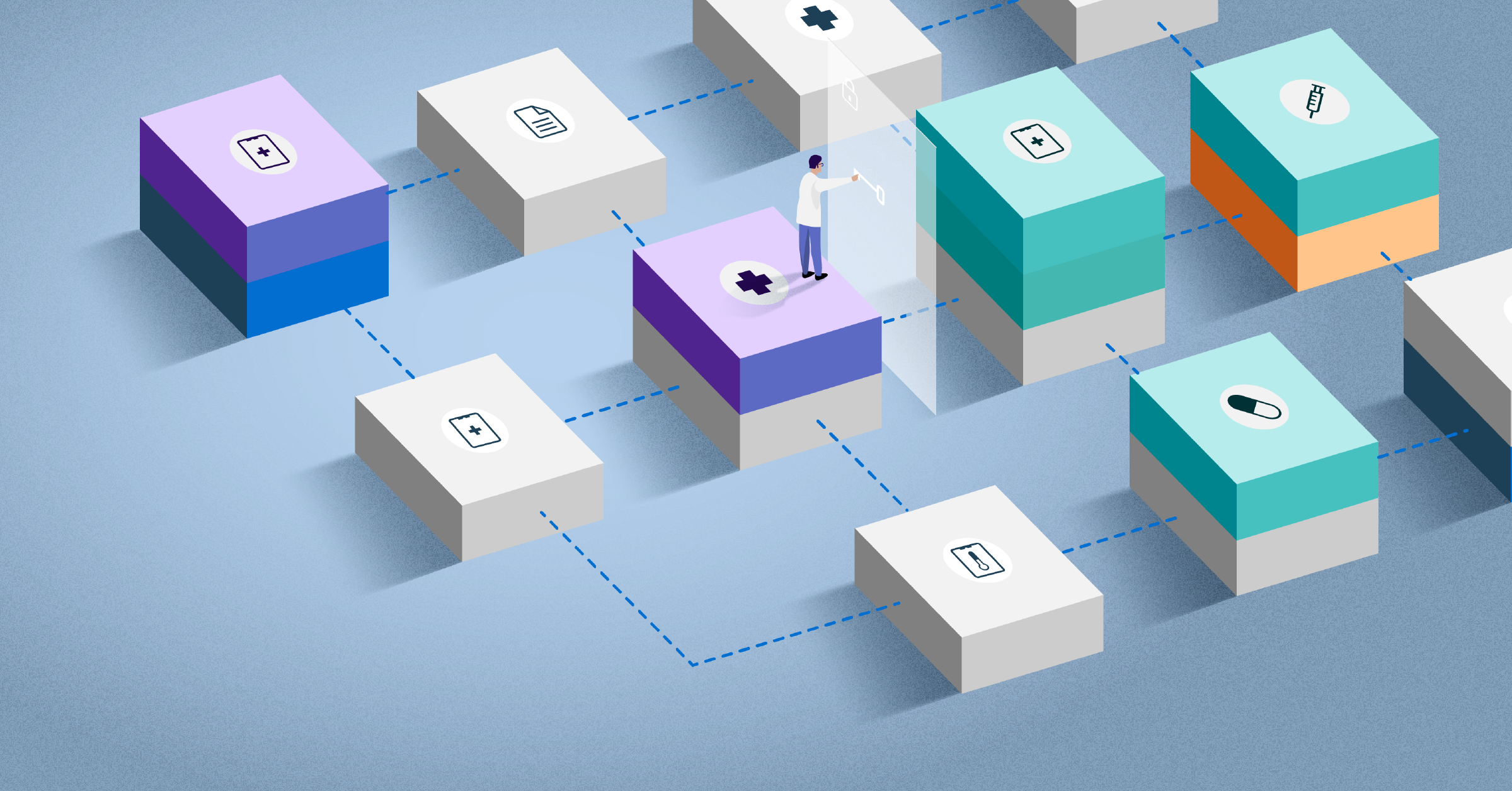digital
Blockchain in Healthcare
Surely we have all heard about blockchain in the last two years. It has been established as a promising technology, but do we understand how it can improve healthcare?
What is Blockchain?
Blockchain is a decentralised system in which all transactional and historical records are captured, stored, and shared across a peer-to-peer network of computers called nodes. In a very simplified explanation, it is a transparent public digital database. You might have heard about blockchain in connection with Bitcoin and other cryptocurrencies. Blockchain enables the existence of cryptocurrencies, but the technology itself is applicable far beyond Fintech. Its main value proposition is a new level of transparency and shared database immutability. A clear, transparent data overview is at the core of healthcare needs in the era of electronic health records and digital data recording.
How can blockchain in healthcare work?
Let's look at the technology through a use case – assuming a laboratory uses blockchain supported software. Test results would be fed into the software, which, in turn, creates a new "data block." This block is shared throughout a decentralised network consisting of, for example, healthcare providers. Because the data is on a shared ledger, it can be transmitted in real-time, diminishing the hurdles surrounding the need for fast access to laboratory results.
Blockchain is a perfect fit for healthcare on many levels, especially due to the immutability of the data, and its permanent existence for the lifetime of a patient. Blockchain is a decentralised, distributed digital ledger under continuous update, where everything is time-stamped and highly encrypted. Therefore, many challenges of the security breaches common nowadays could be avoided due to the system being decentralised.
|
Register for the recording of the webinar about Blockchain in Healthcare. Our guest was Dr Abdullah Albeyatti, Chief Executive Officer at Medicalchain. |
Where are we now with blockchain in healthcare?
According to the most recent overview of blockchain in healthcare, detailed in the book Blockchain in Healthcare: Innovations that Empower Patients, Connect Professionals and Improve Care[1], blockchain use is explored for healthcare operations, digital medicine and care delivery ideas, personal healthcare records, fitness/wellness, research & clinical trials, pharmaceuticals, and genomics. Among other things, integration of blockchain promises operational efficiency and cost savings. Pilot projects are already run around epidemics detection and supply chain management in the Pharma industry to prevent counterfeit medicine from reaching patients.
The authors of the book also note that we can't expect electronic health records to be on blockchain soon due to the complexity of the electronic health record space. However, this was one of the most explored and popular areas of research among blockchain healthcare startups in recent years.
One of the most successful startups developing a blockchain solution in the electronic healthcare records space is Medicalchain. The UK based IT company is using blockchain in their solution MyClinic.com – a telemedicine application connecting patients with their doctor through a convenient and secure video consultation platform on blockchain.
While blockchain offers a new level of connectivity among healthcare providers and institutions, it does not solve the problem of semantic interoperability. The latter still needs to be addressed by different providers using the same data standards. In order for data to be future-proof, Medicalchain is working with Better to build their solution on openEHR – the unique healthcare data standards designed in collaboration with clinicians, and open in the sense that the data written in openEHR is vendor-neutral. This is important since only widespread data standardisation will enable the true potential of new discoveries with the help of existing patient healthcare data.
Do you want to know how Medicalchain is using blockchain for their products? Register for the recording of the webinar where the CEO of Medicalchain Dr Abdullah Albeyatti explained how, in his opinion, blockchain can be exploited in healthcare.
[1] Blockchain in Healthcare: Innovations that Empower Patients, Connect Professionals and Improve Care (HIMSS Book Series, 2019), edited by Vikram Dhillon, John Bass, Max Hooper, David Metcalf, and Alex Cahana.
Read also:
- Effective digital transformation takes place first in people, then in technology
- In Taunton, they no longer wish to see the paper medical chart ever again
- Electronic prescribing saves lives, so make the first step with a gap analysis
- Medication discrepancies: up to 67% of patients coming to the hospital have them
- Seven things to think about before buying an ePMA

